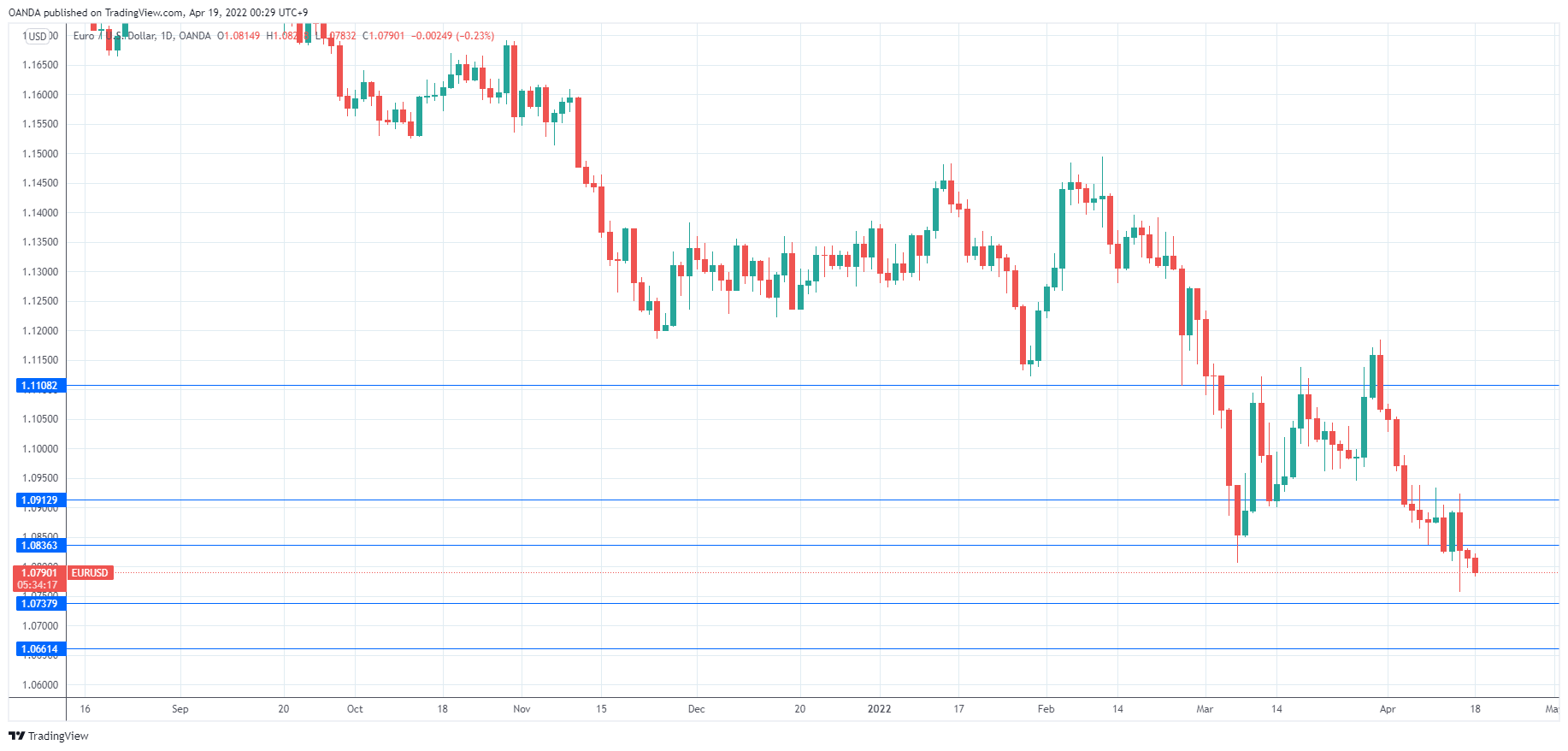The euro was down slightly on Monday, as EUR/USD traded at the key 1.0800 line in North America. With German and French markets closed for Easter Monday, it was likely to be a quiet day for the euro.
Euro struggling at 2-year low
The euro continued to lose ground, and last week EUR/USD tested a multi-decade support line at 1.0800. If the euro closed below this level, it would be a significantly bearish signal, with 1.06 the next major support level.
April has been rough for the euro, which has lost 2.34%. There was plenty not to like about the euro right now, with the Ukraine war casting its shadow on Western Europe and last week’s ECB meeting which disappointed investors.
At the meeting, the central bank essentially gave the market more of the same, maintaining monetary policy and confirming its plan to wind up bond purchases in the third quarter.
ECB President Lagarde didn’t provide any hints about hiking rates and moving towards normalization. What investors saw was an ECB that was hesitant to provide any guidance, perhaps wanting to wait for additional economic data.
In response, the markets lowered the likelihood of a July rate to 50% and sent the euro lower.
With the Fed in a hawkish mood and the markets expecting a super-size rate hike of 0.50% in May, US Treasury yields have been moving higher. Earlier on Monday, the 10-year yield hit 2.87%, a 3-year high. A further widening of the Euro/US rate differential will push the euro even lower.
The Fed was scrambling to fend off spiraling inflation, which hit 8.5% in March, a 40-year high. With investors looking for clues about how tight the Fed plans to go, comments from senior Fed officials will be carefully scrutinized and could be market-movers.
EUR/USD Technical
- 1.0836 was a weak resistance line. Above there was resistance at 1.0913
- There was support at 1.0738 and 1.0661


